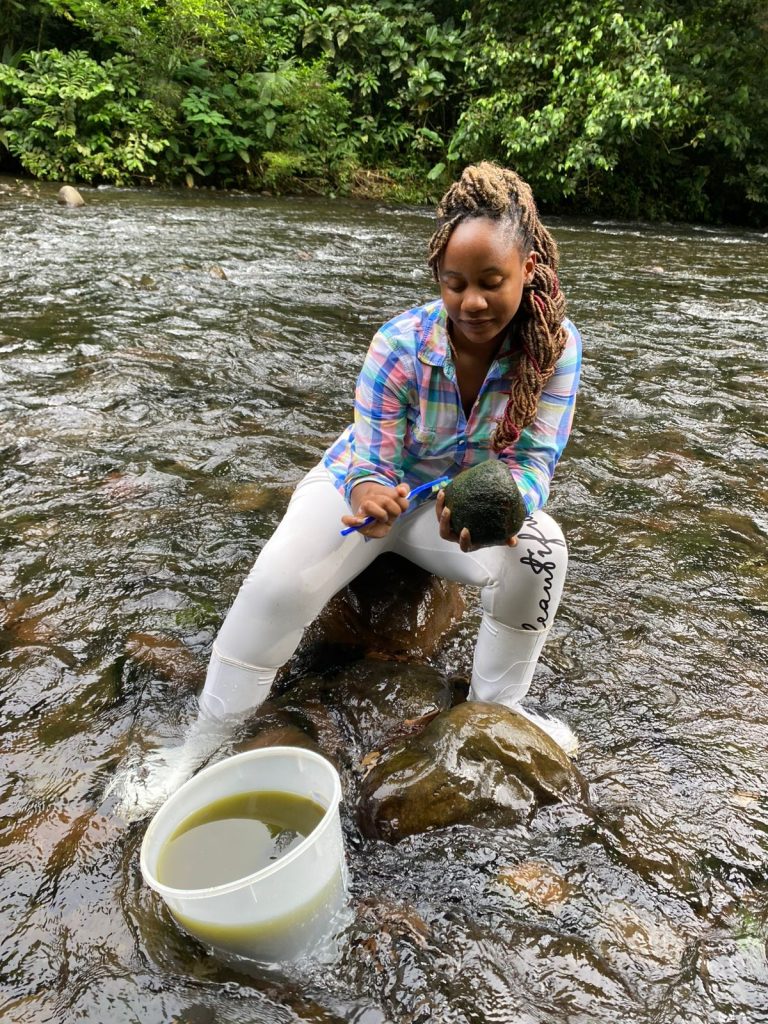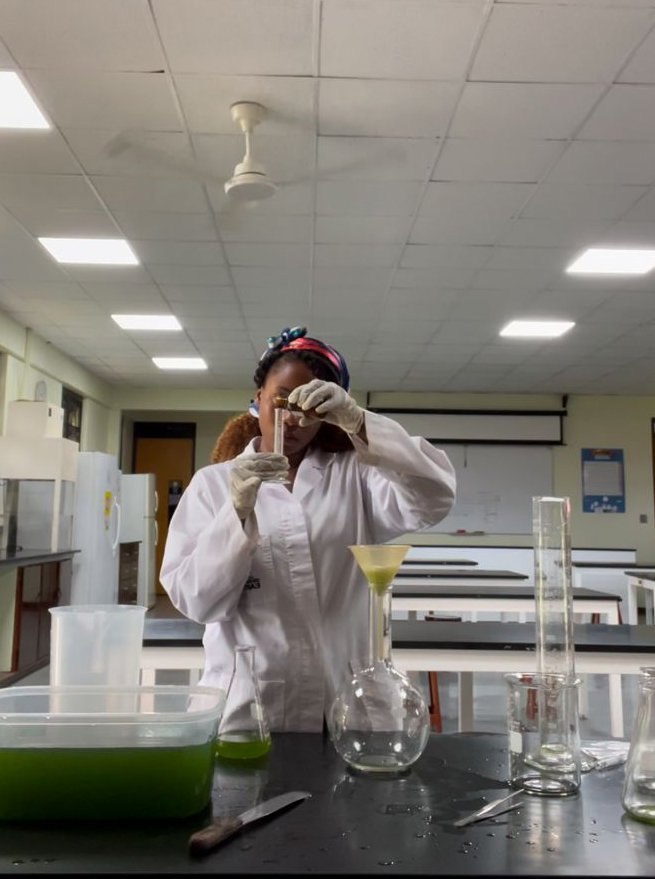Tanaka Murambi (Class of 2024, Zimbabwe), a Mastercard Foundation Scholar at EARTH University, and student Catherine Korkor Akplah (Class of 2024, Ghana) share a strong passion for research and agricultural innovation. They decided to work together on their Graduation Project (GP), focusing on finding a real solution to a recurring challenge in their hometowns: wastewater treatment. Cassava, a staple and widely consumed crop in many West African countries, often generates large amounts of wastewater during its processing, which is usually discarded inappropriately. With its high starch content, this water leads to environmental and health problems.
The duo’s GP explores a sustainable solution through biological treatment using microalgae, which naturally feed on the contaminants in the water, using them as nutrients for growth. This method reduces water pollutants, allowing them to be safely discarded without harming the environment. Furthermore, the harvested microalgae can be repurposed for other uses, such as biofertilizers, or animal feed for tilapia and others.
During a small-scale experiment, Catherine and Tanaka tested two methods: one using only microalgae and another combining microalgae with activated sludge as a pretreatment. The results showed that the combination of activated sludge and microalgae produced better results in reducing key water quality parameters, such as chemical and biological oxygen demand. However, microalgae biomass growth was more successful in wastewater without pretreatment.
Despite the challenges faced during the project, including technical difficulties and the need for constant adaptation, both students are satisfied with the results and are confident they will be able to implement their project when they return to their countries. The hard work done over months contributes to knowledge in the field of water resources and addresses a significant environmental problem in rural communities in Africa and around the world.
“This experience has given me a clear idea of how to carry out a real research project. I feel prepared to take on any project because now I have practical experience, and I’ve also improved my research and communication skills. I think the most important thing is that the GP gave me a perspective on the relevance of sustainability goals, and now it’s a topic I’m interested in exploring in my graduate studies,” says Tanaka.


In the future, Catherine plans to delve deeper into her passion for water management, focusing on sustainable solutions for communities with scarce water resources, while Tanaka wants to pursue a master’s degree that will allow her to continue researching this topic and achieve other innovative results she can apply in her country.
With promising results and a solid foundation for future work, Catherine and Tanaka are ready to make a lasting impact in the field of environmental sustainability.
